Cockapoo Diet and Nutrition Guide
As a proud Cockapoo owner, one of the most important aspects of caring for your furry friend is ensuring they receive proper nutrition. This lovable breed may have unique dietary requirements that differ from other dogs, so it’s essential to understand their specific needs. In this article, we’ll delve into various aspects of a Cockapoo’s diet, from nutritional needs to selecting the right dog food, to ensure your pup thrives and maintains optimal health throughout their life.
Understanding Cockapoo Nutritional Needs
Cockapoos are a popular breed with unique dietary requirementsDetermine your Cockapoo’s daily calorie intakeBalance the macronutrients in your Cockapoo’s dietChoose a high-quality dog food for your CockapooMonitor your Cockapoo’s weight and adjust their diet accordinglyDon’t forget about providing fresh water for your Cockapoo
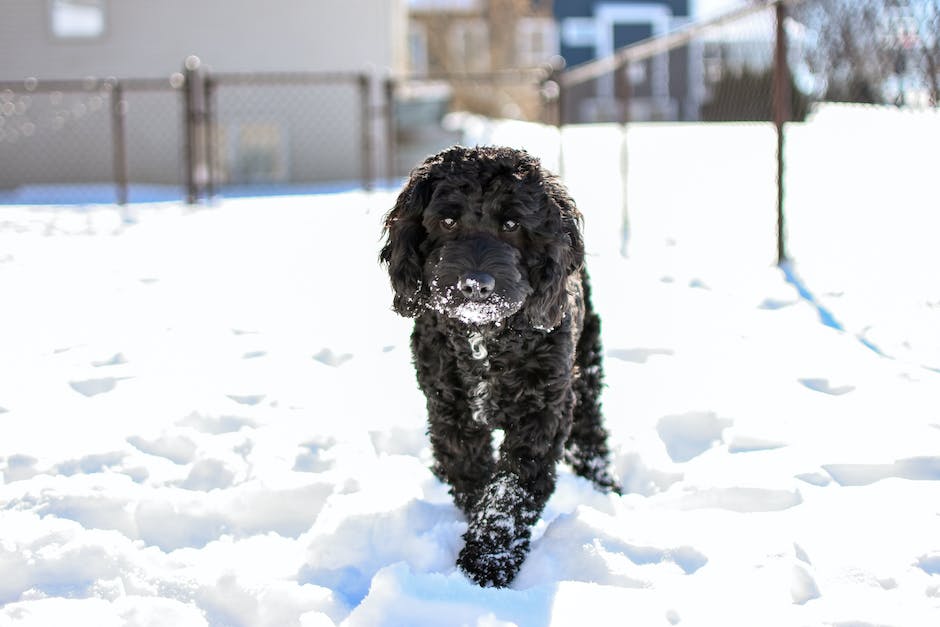
Choosing the Right Dog Food
Cockapoos are playful, loving, and highly intelligent dogs that make for great companions. To ensure your furry friend stays happy and healthy, it’s essential to choose the right dog food according to their specific needs. In this article, we’ll explore the different types of dog food available, and guide you on selecting the best option for your Cockapoo.Before choosing a dog food, it’s important to consider your dog’s age, activity levels, weight, and any existing health conditions. Younger dogs typically require more calories and protein, while older or less active dogs may need fewer calories. Make sure to consult with your veterinarian to determine the specific dietary requirements for your Cockapoo.There are various types of dog food available, and it’s crucial to understand the differences to make an informed choice. The main types include:
- Dry Kibble: Kibble is the most common type of dog food and offers the benefits of being cost-effective and convenient. When choosing a kibble, look for high-quality and natural ingredients. The first ingredient should be a protein source, such as chicken, turkey, fish, or beef. Additionally, choose a formula with healthy grains, fruits, and vegetables, with minimal artificial additives.
- Wet Food: Wet food, usually found in cans or pouches, is another option that more closely resembles a dog’s natural diet. It’s typically higher in protein and moisture content, which can be beneficial for Cockapoos with kidney issues, dental problems or simply for added variety. However, wet food can be more expensive, and its higher moisture content means it can spoil more quickly.
- Raw Food: Raw food diets, also known as BARF (Biologically Appropriate Raw Food) diets, include raw meats, bones, fruits, and vegetables. Proponents of raw feeding argue that it’s a healthier, more natural option for dogs. However, raw diets can be more expensive and time-consuming to prepare and may pose risks related to bacterial contamination. If you’re considering a raw diet, consult with your veterinarian to ensure it’s appropriate for your Cockapoo.
Regardless of the type of food, it’s crucial to ensure it provides comprehensive and balanced nutrition for your Cockapoo. Look for dog food brands that meet the nutritional profiles established by the Association of American Feed Control Officials (AAFCO). These standards ensure that the food contains the appropriate nutrients for dogs at different life stages.Cockapoos can sometimes suffer from specific health conditions that may require a special diet. For example, if your dog has food allergies, you may need to choose a hypoallergenic formula with limited ingredients. Again, it’s essential to consult your veterinarian for guidance on selecting a diet that supports your dog’s health.When transitioning to new dog food, do so gradually to avoid upsetting your Cockapoo’s digestive system. Mix increasing amounts of the new food with the old food over a week or two, gradually decreasing the old one until the transition is complete.Your Cockapoo’s health and happiness depend significantly on the quality of nutrition you provide. To choose the right dog food, consider your dog’s specific needs, understand the different types of food available, and prioritize comprehensive and balanced nutrition. Always consult with your veterinarian for guidance and recommendations tailored to your Cockapoo’s individual requirements.
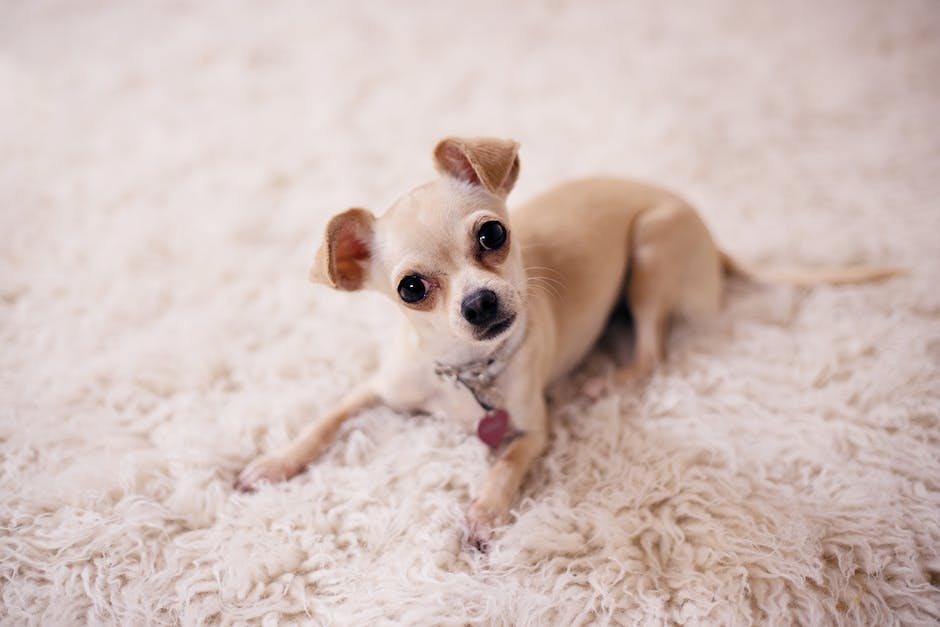
Portion Control and Feeding Schedule
Determine Your Cockapoo’s Caloric Needs
- Consult your vet about your Cockapoo’s ideal weight, which will depend on factors like age, size, and activity level.
- Research the recommended daily caloric intake for your dog’s ideal weight range, typically falling between 600 and 900 calories per day for adult Cockapoos. Keep in mind that puppies will have different calorie needs.
- Always note the caloric content of your dog’s food, which can be found on the packaging or through online research.
Portion Control
- Divide your Cockapoo’s total daily caloric intake by the number of meals you will provide each day (usually two or three). This will give you the appropriate portion size for each meal.
- Measure out the portions using a measuring cup or kitchen scale to ensure accuracy.
- Stick to the portion sizes and resist the temptation to give your dog extra food or treats, as this can lead to weight gain and other health issues.
Choose High-Quality Food
- Opt for premium-quality food that contains a balance of proteins, fats, carbohydrates, and essential nutrients for your Cockapoo’s overall health.
- Look for foods with real meat as the first ingredient, as well as a blend of fruits and vegetables.
- Avoid foods with artificial additives or unhealthy fillers.
Establish a Consistent Feeding Schedule
- Determine a suitable timeline for feeding your Cockapoo based on your personal schedule and the needs of your dog (typically two or three meals per day).
- Stick to the feeding schedule as consistently as possible, aiming for the same times each day.
- Allow your Cockapoo approximately 20 minutes to eat each meal before removing the dish to help train them to eat within that allocated time.
Monitor Your Cockapoo’s Weight and Adjust Accordingly
- Weigh your Cockapoo regularly, preferably every two weeks, to track their progress and ensure they are maintaining a healthy weight.
- Adjust the portion sizes and caloric intake as needed based on their weight changes and your vet’s recommendations.
- Keep an eye on your dog’s body condition, ensuring they don’t become overweight or underweight. A healthy Cockapoo should have a visible waistline and no protruding ribs.
Consult Your Veterinarian for Guidance
- Speak with your vet if you have concerns about your Cockapoo’s diet, weight, or overall health.
- Make adjustments to your dog’s feeding schedule and portion sizes based on their recommendations to ensure your Cockapoo stays in top physical condition.
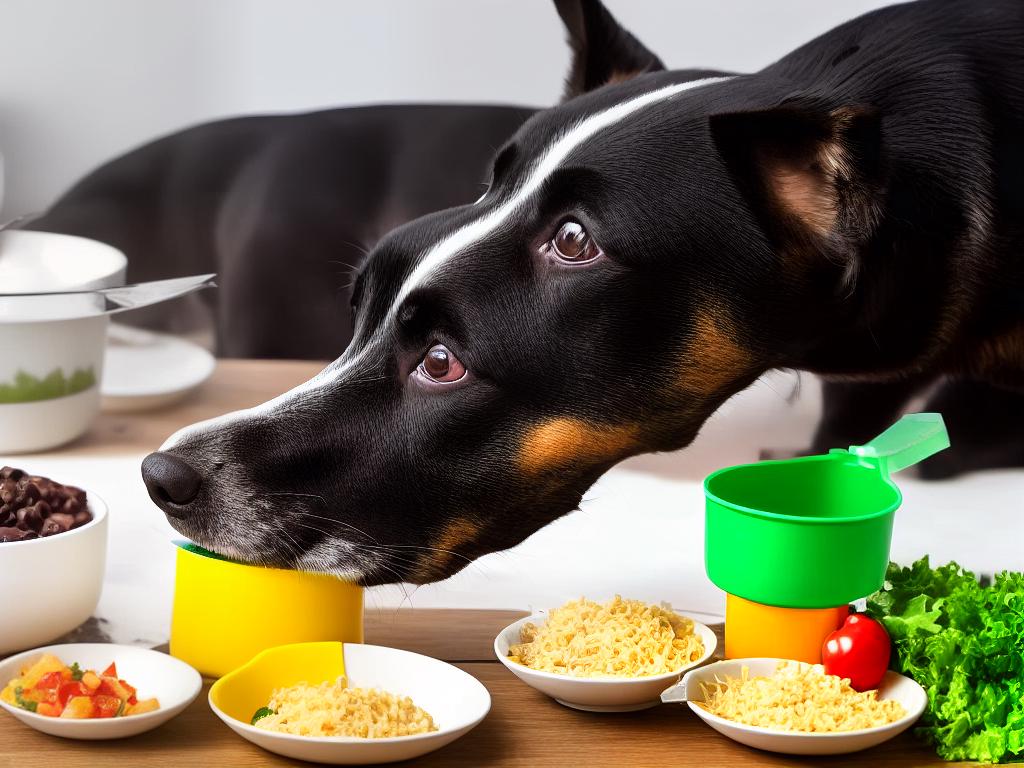
Transitioning to Different Life Stages
As your Cockapoo grows older, their nutritional needs change. A well-balanced diet is essential to ensure they maintain good health and an active lifestyle. To better understand how to adjust your Cockapoo’s diet throughout their life stages, follow these instructions:Puppy Stage (0-12 months):
During this stage, your Cockapoo is rapidly growing and needs a higher energy intake. Feed them high-quality puppy food that is specifically formulated for small breeds or mixed breeds. Ensure the food contains the necessary vitamins, minerals, and nutrients required for a growing puppy.Instructions:
a. Feed your Cockapoo puppy 3-4 times a day, following the recommended serving size on the dog food label. As your puppy grows, adjust the portion sizes appropriately.
b. Include a mix of dry and wet food to provide variety and stimulate your puppy’s sense of taste.
c. Offer healthy treats during training sessions, but don’t overdo it as it may lead to obesity.
d. Always provide clean, fresh water at all times.Adult Stage (1-7 years):
Your Cockapoo reaches adulthood at around 12-15 months of age. At this stage, their growth has slowed down, and they require a well-balanced diet that maintains a healthy weight and supports their activity level.Instructions:
a. Transition your dog to an adult dog food formulation, preferably one specially designed for small breeds or mixed breeds. Ensure the food provides appropriate levels of protein, fat, and fiber.
b. Feed your Cockapoo twice a day; morning and evening. Consult the dog food label for the recommended serving size and adjust it based on your dog’s activity level, size, and weight.
c. Limit treats and table scraps to avoid overfeeding and unintentional weight gain.
d. Continue to provide clean, fresh water at all times.
e. Monitor your dog’s weight and body condition regularly. Adjust their food intake accordingly if they become overweight or underweight.Senior Stage (7 years and older):
As your Cockapoo enters the senior stage, their metabolism slows down, and they become less active. This necessitates adjusting their diet to prevent obesity and support their aging body.Instructions:
a. Transition your dog to a senior dog food formulation that accommodates their decreased activity level and caloric needs. Look for one specifically formulated for small breeds or mixed breeds, with high-quality protein, healthy fats, and lower calorie content.
b. Feed your senior Cockapoo twice a day and closely follow the recommended serving size on the dog food label. Adjust the portion sizes based on their activity level, size, and weight.
c. Reduce treats and eliminate table scraps to maintain a healthy weight.
d. Provide supplements such as glucosamine and chondroitin for joint health, as recommended by your veterinarian.
e. Always offer clean, fresh water.
f. Regularly consult your veterinarian for health assessments and dietary recommendations.Monitoring and adjusting your Cockapoo’s diet throughout their various life stages is crucial for maintaining their overall health and well-being. Always consult with your veterinarian for any concerns related to your dog’s diet and nutrition. By taking the time to understand your Cockapoo’s changing nutritional needs, you can ensure they enjoy a happy, healthy life.
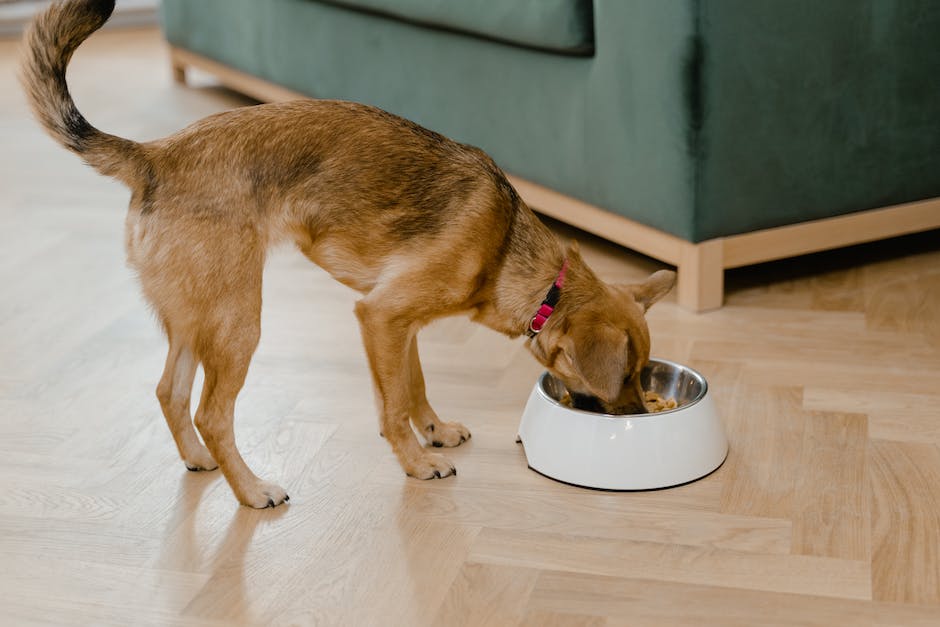
Picky Eaters and Dietary Boredom
Managing Picky Eaters and Preventing Dietary Boredom in Cockapoos
As a Cockapoo owner, it’s essential to keep your furry friend healthy and happy. As enthusiasts or hobbyists, learning how to manage your dog’s dietary habits is crucial to maintaining their well-being. Picky eaters or dietary boredom can be problems for many dogs, including Cockapoos. This guide will provide strategies for managing a picky eater and preventing dietary boredom to ensure your Cockapoo maintains a balanced diet.
Step 1: Understand Your Cockapoo’s Nutritional Requirements
Before diving into strategies for picky eaters and dietary boredom, it’s essential to understand your Cockapoo’s basic nutritional requirements. A balanced diet for your dog should contain:
- High-quality protein (animal-based)
- Healthy fats (e.g., omega-3 and omega-6 fatty acids)
- Carbohydrates (e.g., whole grains, fruits, and vegetables)
- Vitamins and minerals
- Clean, fresh water
Consult with your veterinarian to determine the specific amounts and type of food your Cockapoo needs based on their weight, age, and activity level.
Step 2: Establish a Feeding Schedule
Picky eaters often benefit from a regular feeding schedule. Feed your Cockapoo at the same times every day and provide a consistent portion size. For adult dogs, feeding twice a day is ideal – once in the morning and once in the evening. Puppies may need to be fed more frequently, up to 4 times a day.
Step 3: Choose a High-Quality Dog Food
To prevent dietary boredom, it’s critical to provide your Cockapoo with a variety of high-quality dog foods. Look for products that use real animal proteins, whole grains, and fresh fruits and vegetables. Avoid artificial preservatives, colors, and flavors. Keep an eye on the ingredient list for allergens that might be problematic for your dog, such as corn or wheat.
Step 4: Gradually Introduce New Foods
When trying to address picky eating or dietary boredom, the key is to introduce new foods slowly. By gradually adding a new food to your Cockapoo’s current diet, you can ease their transition to a new flavor or texture. Mix a small amount of the new food with their regular kibble and slowly increase the proportion of the new food over 5-7 days.
Step 5: Make Mealtime Engaging
To encourage your picky eater, try making mealtime more engaging. Place their food in puzzle toys or slow feeders that require your Cockapoo to work for their meal, increasing their interest in eating.
Step 6: Offer Healthy Treats and Toppers
Introduce healthy treats or toppers to your dog’s meal to make their food more appealing. Examples of nutritious toppers include cooked lean meats, plain yogurt, cooked or raw vegetables, and fruits.
Step 7: Avoid Feeding Human Food
Feeding your Cockapoo human food can reinforce picky eating habits, and many human foods are not suitable for dogs. Stick to their dog food and healthy treats.
Step 8: Stay Patient and Consistent
Managing a picky eater and preventing dietary boredom in your Cockapoo takes time and patience. Remain consistent in your strategies and work with your veterinarian to make any necessary changes to your dog’s diet.
Conclusion:
By understanding your Cockapoo’s nutritional requirements, providing a variety of high-quality foods, creating an engaging mealtime experience, and being patient and consistent, you can help your picky eater maintain a balanced diet and prevent dietary boredom. Always consult with your veterinarian for specific recommendations for your dog’s unique needs.

Supplements and Special Diets
Just like humans, our furry friends can benefit significantly from a balanced and nutrient-rich diet. Cockapoos are a crossbreed between Cocker Spaniels and Poodles, so they may have unique dietary needs to keep them healthy and active. This guide will discuss various supplements and special diets to promote your Cockapoo’s overall well-being and address specific health concerns or allergies. Always consult with your veterinarian before making any changes to your Cockapoo’s diet.Benefit: Omega-3 fatty acids are essential for maintaining your Cockapoo’s skin and coat’s health, reducing inflammation, and promoting brain function.
Sources: Fish oil is an excellent source of omega-3 fatty acids. You can supplement your dog’s diet with fish oil capsules or liquid. Alternatively, you can feed them cooked or canned fish such as salmon or sardines.
Dosage: Always follow the manufacturer’s dosage recommendations for fish oil supplements or consult your veterinarian for guidance.Benefit: Probiotics can help maintain your Cockapoo’s gut health and support their immune system.
Sources: You can find probiotics in supplements specifically designed for dogs or purchase them from pet stores or online retailers.
Dosage: Follow the manufacturer’s recommended dosage or consult your veterinarian for guidance.Benefit: These supplements help support joint health, which can be especially beneficial for Cockapoos prone to hip dysplasia or arthritis.
Sources: Look for supplements that combine glucosamine and chondroitin specifically formulated for dogs.
Dosage: Consult the manufacturer’s recommended dosage or consult your veterinarian for guidance.Benefit: Antioxidants can help boost your Cockapoo’s immune system and reduce inflammation, which is beneficial for overall health.
Sources: Fruits such as blueberries can be added to your dog’s regular diet. Alternatively, antioxidant supplements for dogs are available at pet stores or online retailers.
Dosage: Follow the manufacturer’s dosage recommendations or consult your veterinarian for guidance.If your Cockapoo suffers from food allergies or sensitivities, a special diet may be necessary to alleviate symptoms such as itching, inflammation, and digestive problems.
a. Limited Ingredient Diet: This diet consists of a single protein source and a single carbohydrate source, making it easier to identify possible allergens in your Cockapoo’s food.
b. Grain-Free Diet: Some Cockapoos may have sensitivities to grains such as wheat, corn, or soy, in which case a grain-free diet can be beneficial.
c. Hypoallergenic Diet: These diets contain novel proteins, such as venison or kangaroo, which your Cockapoo is less likely to react to.Providing your Cockapoo with a balanced and nutrient-rich diet is one of the most important aspects of pet ownership. By incorporating supplements and special diets as needed, you can support your Cockapoo’s overall health and well-being throughout their life. Don’t forget to consult with your veterinarian before making any significant dietary changes for your beloved furry friend.
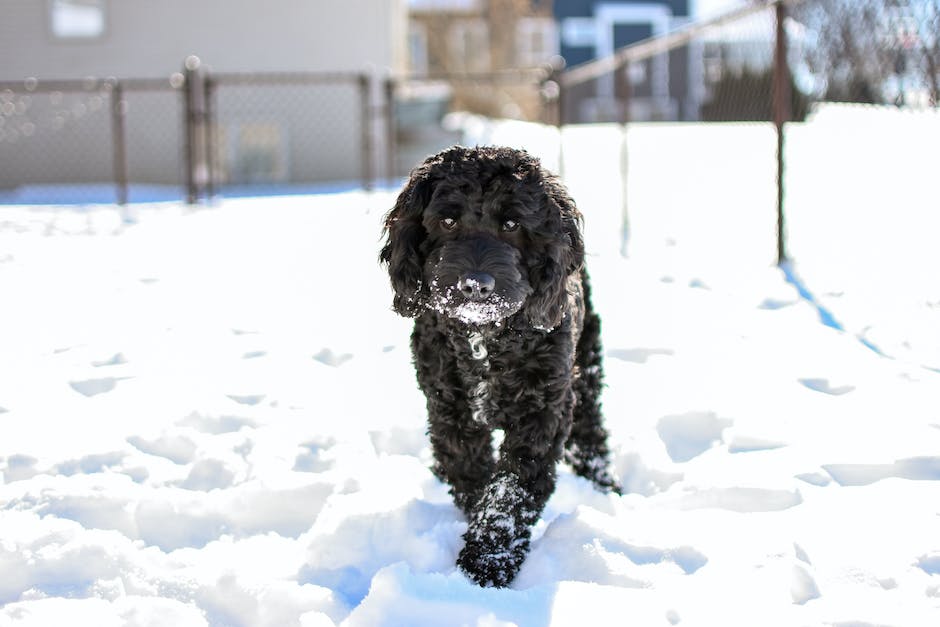
Treats and Snacks
Cockapoos, a delightful mix of Cocker Spaniel and Poodle, are friendly and intelligent family dogs. To keep them in excellent health, providing them with a well-balanced diet is essential. This includes not only their daily meals but also the treats and snacks used for training and rewarding their good behavior. In this guide, we will explore some healthy treat and snack options for your Cockapoo and share tips on how to avoid overfeeding.Cockapoos come in a range of sizes, and their treat intake should take this into account. Ideally, treats should not account for more than 10% of their daily caloric intake. It’s a good idea to consult your vet to determine the right amount of treats for your specific dog. When giving your Cockapoo a treat, remember to reduce the size of their regular meals accordingly to avoid overfeeding.Opt for treats made from natural, wholesome ingredients rather than those laden with artificial additives and sugars. Good options include:
1. Fruits and veggies: Many dogs enjoy fresh, raw vegetables and fruits like carrots, green beans, cucumbers, apples (without seeds), and blueberries. These low-calorie, fiber-rich treats can provide vitamins and minerals that promote your Cockapoo’s overall well-being.
2. Lean proteins: Chicken, turkey, or salmon-based treats are excellent sources of protein, which is essential for building strong muscles for your active Cockapoo. Always ensure the protein source is cooked (without added salt/fat) and avoid any bones.
3. Peanut butter: A small amount of unsalted, sugar-free peanut butter can serve as a delicious treat for your Cockapoo. Beware of peanut butter containing Xylitol, as it’s toxic to dogs.While homemade treats are fantastic, you can also find suitable commercial dog treats. Check the ingredient list and look for options with simple, natural ingredients. Avoid treats with artificial colors, preservatives, or flavors. Also, look out for treats that have high sugar or salt content.Cockapoos, like other dogs, can develop allergies or food intolerances. Watch for signs of itching, upset stomach, or skin irritations. If you suspect that your dog is having a reaction to a specific treat, consult your veterinarian for guidance and switch to another treat option.Treats can be a valuable tool for positive reinforcement training. Use them to reward good behavior, such as following commands or going to the bathroom outside. Be consistent with your rewards and always praise your Cockapoo when they earn a treat.
Tip: For training purposes, use small, bite-sized treats. Larger treats can be broken into smaller pieces.It’s easy to overfeed treats, especially when our dogs give us those pleading eyes. However, it’s essential to resist the temptation and remember that excessive treats can lead to weight gain and health issues. Stick to the 10% rule and reduce your Cockapoo’s regular meal size if treats are given throughout the day.Providing your Cockapoo with healthy treats and snacks can improve their overall wellness, strengthen your bond, and assist with training. By opting for nutritious options and being mindful of portion sizes, you can ensure your furry friend stays healthy and happy for years to come.
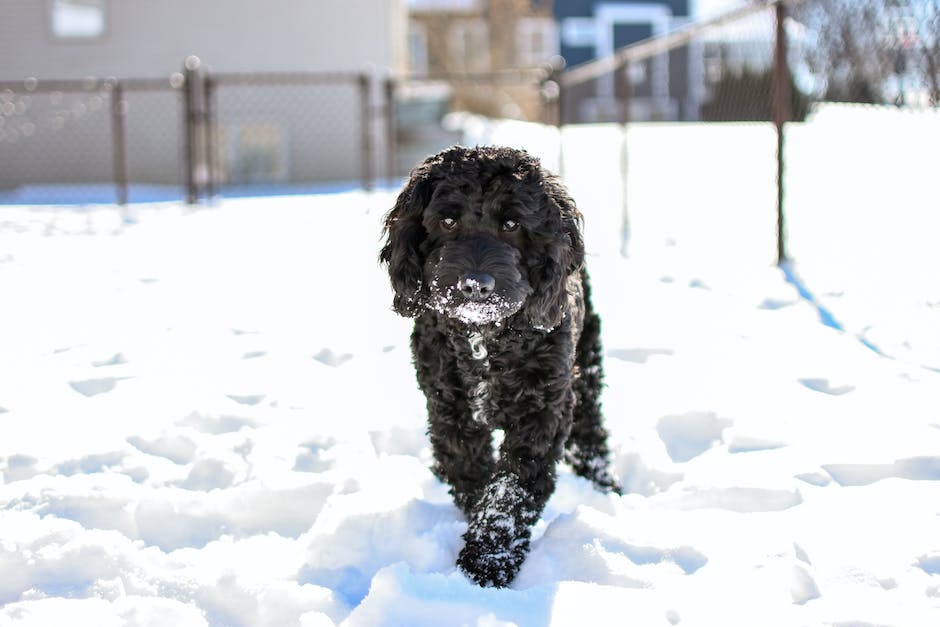
Feeding your Cockapoo a balanced, nutritious diet is crucial for their overall health and well-being. By understanding their unique nutritional needs, choosing the right dog food, establishing portion control and feeding schedules, and adapting to various life stages, you can provide your furry friend with the best possible diet. Don’t forget the importance of special diets, supplements, treats, and snacks as well! With the right approach to nutrition, your Cockapoo will have the energy and vitality to enjoy a happy, active life with you as their devoted companion.
